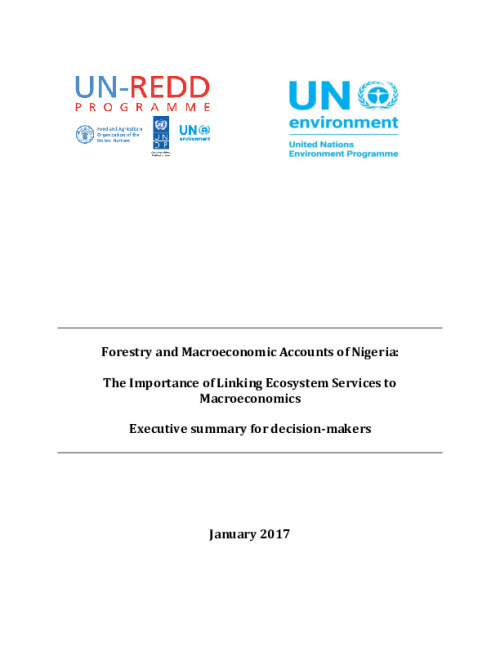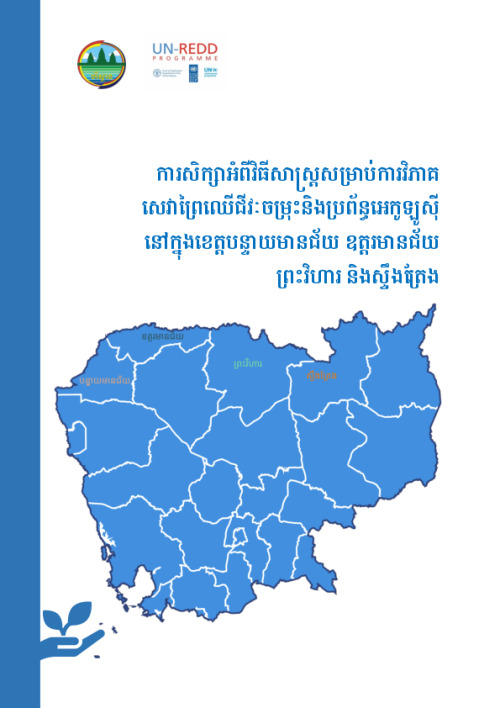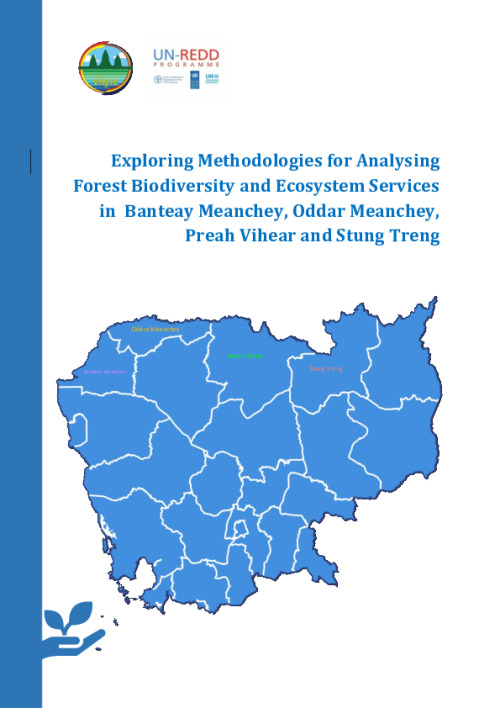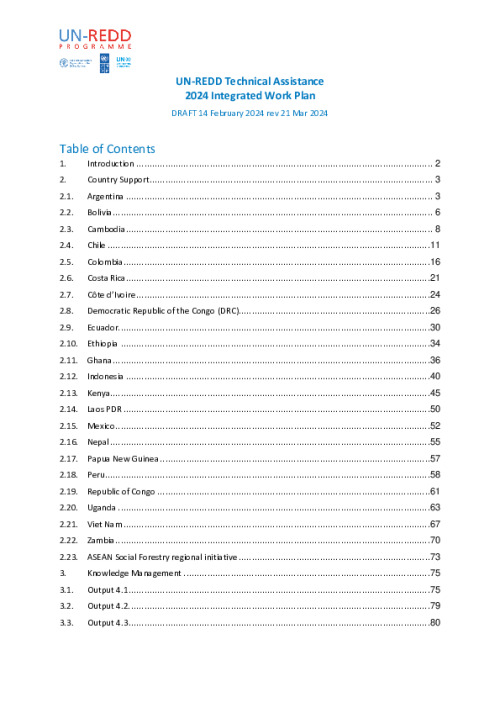Forestry and Macroeconomic Accounts of Nigeria: The Importance of Linking Ecosystem Services to Macroeconomics (Ex summary)

The purpose of this study is to analyze the economic value of Nigeria’s forest resources and demonstrate some policy instruments that would alleviate pressure on these natural forest systems. The results show a rapid and severe rate of deforestation, results from a range of cumulative effects fundamentally driven by the immediate availability of woody biomass in the form of timber, fuelwood and construction timber; and the opportunity to acquire land for significantly higher agricultural returns. Together, these drivers comprise a considerable economic incentive for deforestation.
The total value of forest ecosystem services based on valuations done between 2000 and 2015 is approximately 1,000,000 Naira/ha. Although value is derived through forest use, the unsustainable exploitation thereof and subsequent deforestation results in a net loss to the economy of Nigeria.Â
These losses will continue for as long as there is a disconnect between the cost-benefit decisions made by land holders, users and other indirect role players, where the net benefit of deforestation is highly positive; and the cost-benefit ratio at a national scale, which, as demonstrated above, is highly negative.
Thus, to address the unique deforestation challenges faced by Nigeria, this study not only uses accounting and valuation of natural capital, but also makes significant progress towards designing and testing policy instruments that goes to the heart of the country’s deforestation problem
The analysis shows that the contribution of forests to the economy of Nigeria is underestimated in the national accounts.
Furthermore, the study demonstrates three economic policy instruments that seek to incentivise landholders to pursue sustainable forest management. These proposed policy options are not intended to be a comprehensive final set of options for Nigeria, but are rather used to demonstrate how these options could work, what they would cost, to what extent they would curb deforestation and what the relative costs and benefits to the economy of Nigeria would behe three preliminary policy options tested are: (i) Carbon trade; (ii) Certified plantation forestry and (iii) Agroforestry.
Download the resource
Size: (2.179 MB)


